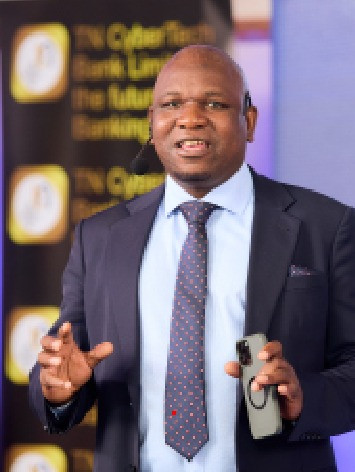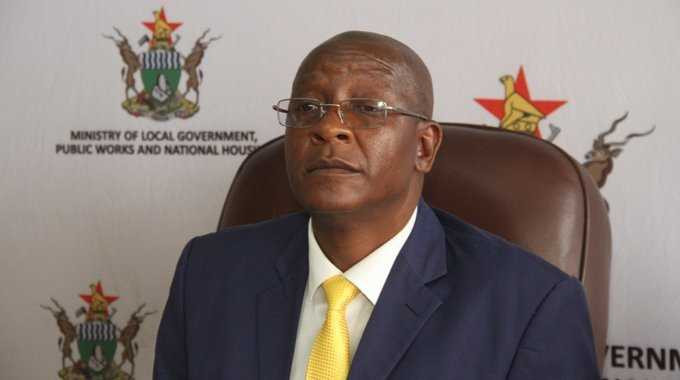
WHAT is the future of banking in Zimbabwe? How can Artificial Intelligence expand financial inclusion without leaving people behind? And what new skills will the finance sector need? At the In Conversation with Trevor Ideas Festival, TN CyberTech Investments Holdings Limited CEO Tawanda Nyambirai (TN) tackled these questions head-on. Our chief reporter, Melody Chikono (MC), followed up with him for a deeper dive. Here are the key takeaways from their conversation:
MC: You have raised concern over the fact that people no longer see value in banking their money. Why is it like this?
TN: When you put your money into a bank, you expect to be paid interest on your money because the bank will be using your money to earn money. But the situation at the moment is that you put your money in a bank, the bank uses it to fund their lending activities. To the best of their ability, rather than paying you interest, you are charged fees for maintaining an account with the bank. You are charged fees for transacting with them. Consequently, a bank at the moment is not delivering what banking customers expect it to deliver.
MC: Why are banks doing that?
TN: When you put money in a bank, there are statutory reserves that banks pay in respect of that deposit, statutory reserves upwards of 35%. So, 35% of the money is not really available for the banks to use.
And if they have a surplus position at the reserve bank, some of the money may be taken and they get issued with a non-negotiable, non-interest-bearing certificate of deposit, which is of no use to them, and is a cost to the bank. So, the cost of banking is very high.
And here you have not even added the operating costs that a bank incurs for it to exist. That is why banks are in a situation where they charge their customers in order to recover their operating expenses. For that reason, customers are charged and they do not really get the benefit that they are expected to receive.
MC: What is the future of banking in Zimbabwe?
- Ideas Festival to inspire change, collaboration
- Industrial hemp sector requires US$3m funding
- Exploring Zimbabwe’s start-ups ecosystem
- Trevor Ncube: I thought I would be a lawyer
Keep Reading
TN: If people keep losing confidence in the banking sector, they will eventually not use banks. I think the Reserve Bank is doing a lot of work. Yes, we can criticise them. I am one of the people who criticise them.
But I think they are doing a lot of work in trying to bring back stability and confidence on the part of customers, and to make banking cheaper. I think once they find a sustainable formula to deal with inflationary pressures, we will see the Reserve Bank taking measures to lower the cost of banking so that depositing customers can start again to save money in a bank.
I think they have to address this in phases. The first phase was to stabilise, build confidence, and control inflation by stamping out the arbitrariness with which those who manage to access money in banks conduct their business, and stamp out arbitrary opportunities so that they control inflation. A lower inflation rate is in our interests as a nation. So, I think they will get the balance. It is not something that will be achieved in a day. It will take time, but I think we will get there.
MC: You raised concern on staff costs to revenue ratio. Is it just at TN CyberTech Bank or is it across the board?
TN: Some banks do very well. The reason why some banks do very well is that they are bigger and move bigger volumes. When you have got bigger volumes, you have got more revenue against which to defray your costs. So, we are not the best in terms of containing our staff costs to income ratios, but we are now almost amongst the best, and we will be even better as we implement our strategies. Staff costs is an industry-wide problem. I think that is why you hear that all banks have been retrenching. Even the biggest banks have retrenched because staff costs are really a problem in the sector. But we are all, in our different ways, addressing that problem.
MC: In September, you announced an offer where buyers could co-own homes in Ruwa with TN CyberTech Bank by purchasing between 40% and 100% of a house, paying a 10% deposit, and receiving title deeds reflecting their divided ownership share. Tell us more about this product.
TN: That is a very innovative product we launched that only we can launch in this market. The intention was to benefit the informal sector, which is the larger part of our economy right now. What that project entails is that if you can afford to raise your deposit, you can move in and occupy the property. You do not have to buy the whole property. You can only buy the part that you can afford and be a co-owner of the property with us but have the benefit of occupying it.
So, instead of paying rent for 100% of the property, you can say: "I want to buy 20% of it so that I pay rent for 80%, but 20% is now mine." When you can afford more, you can increase right up to the point when you can buy 100% of the property. So, that is the structure. It is intended to enable our customers to buy a property gradually, stage by stage, rather than 100% from the outset. That is the intention, and we will do a follow-through because as it stands, more than 70 of those houses are gone and very soon they will be finished.
MC: Are you going to introduce more houses?
TN: We have over 1 000 stands in Harare South that we will be bringing into the market in a similar fashion.
This will be cheaper because it is in Harare South, so more affordable and with the same structure, the objective being to try and get to a stage where as many people as possible are able to afford their own accommodation, rather than paying rent for lodgings for years.
We are saying, look, you can buy as you go. So, that way you pay rent, you are also paying for ownership, and you end up being the owner of the property.
MC: Any timelines for the rollout of that project?
TN: I can say it is coming soon. Our hope was to start before the end of the year.
There are challenges there in that some of the properties were invaded by some illegal settlers.
We are working our way through removing them and we would like to make it a gated community. So, after we remove those people who invaded them — we have title — then we would like, maybe, to put a fence or wall around to ensure it is more secure, thereby trying to mitigate the risks associated with the southern part of the city.
If people say there is crime, it is not safe and so on, we are saying we will ensure that it is a gated community, we will introduce security, better water reticulation, and so on. That way, you get into a high-value setup in Harare South that is much more affordable.
MC: How will the tokenised system appear in the registry system given that we have been used to the title deed?
TN: Let me tell you something about the registry system.
It is something I started working on when I was a young lawyer. The Deeds Registry Act allows for co-ownership. A co-ownership where you can own a percentage of a property and I own another percentage, and you can deal as you like with your percentage. That is called co-ownership. So, it is already there in our statute books. Those who put these systems way ahead of us envisaged a system where a property can be owned by several people in different percentages. So, we will be leveraging that legal system that is already in existence to enable the informal sector to become co-owners with us on identified properties.
MC: Have you already engaged the regulators over this?
TN: There is no need for regulator engagement because it is already in the law. This is a system I also developed for the Joina City you see today.
I designed the ownership structure on behalf of Standard Bank of South Africa who were the co-financial advisors on the ownership, on the fundraising for Joina City.
So, the ownership structure, which is a co-ownership structure, I designed.
I also used it in some Helensville properties where I managed to get high networth individuals to own a property in Helensville, a co-ownership structure where you can deal with your percentage, you can sell your percentage, you can mortgage it to raise funding, and so on, without affecting the other co-owners. So this is something that I have done over and over again in my career.
MC: You mentioned that the tokens can be used as security for loans. Will this lending be facilitated only within TN CyberTech Bank’s ecosystem, or will external financial institutions also recognise these tokens as valid collateral?
TN: No, anywhere. You actually have a title deed in your hand. That has got your name, with your percentage.
So, you can take it to any lending institution that accepts real estate as security, and use it, mortgage it, use it as security to mobilise capital. But how much money would one need to apply for this escalator?
You saw in Ruwa it depended on the percentage that you wanted. We say 10% of the value, so it will all depend on the value. Once we do an evaluation of those stands, we will say 10%; if you can raise 10% up front as your deposit, then it guarantees you to be a co-owner.
But you are moving from real estate to this tokenised subject.
MC: You have now moved from real estate to tokenised gold dump projects — does this signal a broader strategy to turn TN CyberTech into a platform for tokenised investment across different sectors?
TN: We are always very proud that we are an innovative institution. So, it is not a departure from our core banking or way of doing business.
But it is part of the various innovative products that we come up with to make the lives of our customers better.











